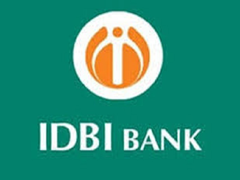About | Industrial Development Bank of India (IDBI) , MAHARASHTRA Check here latest notification
The Industrial Development Bank of India (IDBI) is a public sector bank in India, established to provide credit and other financial facilities for the development of industry in the country. Here's a comprehensive overview:
History and Establishment
- Formation: IDBI was established in 1964 by an Act of Parliament to provide credit and other facilities for the development of industry. Initially, it operated as a subsidiary of the Reserve Bank of India (RBI).
- Autonomy: In 1976, the ownership of IDBI was transferred to the Government of India, making it an independent entity.
Key Functions
1. Project Financing: IDBI provides medium to long-term project finance to large and medium-sized industrial enterprises.
2. Working Capital: It offers working capital finance to meet the short-term needs of businesses.
3. Direct Loans and Advances: The bank extends direct loans and advances to industrial enterprises.
4. Underwriting: It underwrites the issue of stocks, shares, bonds, and debentures.
5. Technical and Advisory Services: IDBI provides technical and advisory services for the promotion, management, and expansion of industries.
Evolution and Reorganization
- Banking Business: In 2004, IDBI was converted into a banking company, thereby diversifying its functions to include banking services under the name IDBI Bank.
- Merger: In 2005, IDBI merged with its subsidiary IDBI Bank, combining their operations.
- Public Sector Bank: Although initially a development financial institution, IDBI Bank is now a full-service public sector bank.
Ownership and Control
- Government Stake: Historically, the Government of India held a significant stake in IDBI. However, over time, the stake has been reduced.
- LIC's Stake: In January 2019, the Life Insurance Corporation of India (LIC) acquired a controlling stake of 51% in IDBI Bank, effectively making LIC the promoter of the bank.
Services and Products
1. Retail Banking: IDBI Bank offers a range of retail banking services, including savings and current accounts, fixed deposits, and loans.
2. Corporate Banking: It provides various corporate banking products, including corporate loans, working capital finance, and trade finance.
3. Agriculture and Rural Banking: The bank supports agriculture and rural development through dedicated financial products.
4. Treasury Services: IDBI Bank offers treasury services, including foreign exchange, derivatives, and money market operations.
Financial Performance
- Revenue and Profit: Like other banks, IDBI's financial performance is assessed based on revenue, profit, and key financial ratios. It publishes annual reports detailing its financial health and performance.
Challenges and Reforms
- NPA Issues: IDBI Bank has faced challenges with non-performing assets (NPAs), which have impacted its financial stability.
- Recapitalization: The government and LIC have provided capital support to strengthen the bank's balance sheet.
- Strategic Reforms: Ongoing reforms and strategic measures aim to improve operational efficiency and financial health.
Headquarters and Network
- Headquarters: IDBI Bank's headquarters is located in Mumbai, Maharashtra, India.
- Branch Network: The bank has an extensive network of branches and ATMs across India, serving millions of customers.
Future Prospects
- Digital Transformation: IDBI Bank is focusing on digital banking services to enhance customer experience and operational efficiency.
- Expansion Plans: The bank aims to expand its footprint and diversify its product offerings to cater to a broader customer base.
In summary, the Industrial Development Bank of India (IDBI) has evolved from a development finance institution to a full-service public sector bank, playing a crucial role in the industrial and economic development of India.

